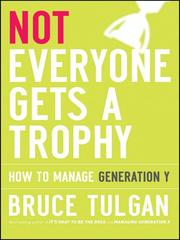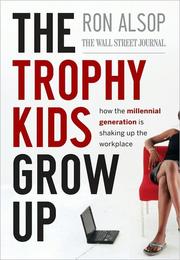| Listing 1 - 10 of 271 | << page >> |
Sort by
|
Book
Year: 2019 Publisher: Washington, D.C. : The World Bank,
Abstract | Keywords | Export | Availability | Bookmark
 Loading...
Loading...Choose an application
- Reference Manager
- EndNote
- RefWorks (Direct export to RefWorks)
This technical guide is the second in a series of four technical guides on variable renewable energy (VRE) grid integration produced by the Energy Sector Management Assistance Program (ESMAP) of the World Bank and the Global Sustainable Electricity Partnership (GSEP). It focuses on the main functionalities, differences and benefits of various compensation devices that can be employed to increase system transfer capacity, system stability, power quality and flexibility to cope with increasing penetrations of renewables in the system. The applications of FACTS devices are associated with four essential technical enhancements of system capacity, system reliability, power quality and system controllability. The application of the FACTS devices for these enhancements would depend on the system needs which would be identified and recommended through the power system studies during the interconnection process. Power system studies are further elaborated in "STUDIES FOR GRID CONNECTION OF VARIABLE RENEWABLE ENERGY GENERATION PLANTS - Technical Guide 3".
Book
ISBN: 9781789734935 9781789734928 1789734932 9781789734911 1789734916 1789734924 Year: 2019 Publisher: Bingley
Abstract | Keywords | Export | Availability | Bookmark
 Loading...
Loading...Choose an application
- Reference Manager
- EndNote
- RefWorks (Direct export to RefWorks)
Generations Z in Europe: Inputs, Insights and Implications brings together differing geographic perspectives from a range of researchers to present the complex picture of contemporary reality for 'Gen-Z' workers, demonstrating the diverse issues faced by the new global workforce.Using a variety of perspectives from social science, media theory and literary studies, the book creates a showcase of existing and new theoretical and scientific approaches to exploring current challenges relating to Generation Z workers. The voices of theorists such as Karl Mannheim, Jean Baudrillard and Neil Postman are utilized to understand and reflect on the different social, cultural and political contexts for Generation Z in Europe and the need to sensitize organizations to the needs of these young future employees.Chapters offer analysis exploring nine different national contexts from Spain, Great Britain, France, The Netherlands, Italy, Germany, Serbia, Bulgaria and Russia. Key themes highlighted across these studies include: digital socialization, intellectual capital, social engagement, aging organizations and the digital divide. The discussion of future implications and the conclusions offered make this book an illuminating read for both researchers and practitioners working within areas of Business and Human Resource Management.
Book
ISBN: 1536120472 9781536120479 9781536120257 1536120251 Year: 2017 Publisher: New York : Novinka,
Abstract | Keywords | Export | Availability | Bookmark
 Loading...
Loading...Choose an application
- Reference Manager
- EndNote
- RefWorks (Direct export to RefWorks)
Generation X. --- Generation Y. --- Baby boom generation. --- Baby boomers --- Boomers, Baby --- Generation, Baby boom --- Post-war generation --- Postwar generation --- Generations --- Population --- Echo boomers --- Echo generation --- Generation M --- Generation Why? --- Millennial generation --- Millennials (Generation Y) --- Net generation --- Newmils --- Thatcher's children (Generation Y) --- Baby bust generation --- Baby busters --- Gen X --- X-ers --- X generation --- Xers --- Employee motivation --- Baby boom generation --- Generation X --- Generation Y --- Motivation in industry --- Work motivation --- Motivation (Psychology) --- Personnel management --- Psychology, Industrial --- Goal setting in personnel management --- E-books

ISBN: 0470442794 1282012053 9786612012051 0470442786 9780470442784 9780470443156 0470443154 6612012056 9780470256268 0470256265 9780470442791 9781282012059 Year: 2009 Publisher: San Francisco, CA : Jossey-Bass,
Abstract | Keywords | Export | Availability | Bookmark
 Loading...
Loading...Choose an application
- Reference Manager
- EndNote
- RefWorks (Direct export to RefWorks)
This book will frame Generation Y (children born between 1978-1991) for corporate leaders and managers at time when the corporate world is desperate to recruit and retain worked in this age group. It will debunk dozens of myths, including that young employees have no sense of loyalty, won't do grunt work, won't take direction, want to interact only with computers, and are only about money.This book will make a unique contribution in four key ways:It will disprove the idea that the key to recruiting, retaining, and managing this generation is to somehow make the workplace more "
Personnel management --- Generation Y --- Young adults --- Employee motivation --- Young people --- Young persons --- Adulthood --- Youth --- Echo boomers --- Echo generation --- Generation M --- Generation Why? --- Millennial generation --- Millennials (Generation Y) --- Net generation --- Newmils --- Thatcher's children (Generation Y) --- Generations --- Population --- Employment --- E-books
Book
ISBN: 9353885531 9353885523 Year: 2021 Publisher: Los Angeles : Sage,
Abstract | Keywords | Export | Availability | Bookmark
 Loading...
Loading...Choose an application
- Reference Manager
- EndNote
- RefWorks (Direct export to RefWorks)
"Dear Millennial, Being YOU is not easy. While the average millennial struggles with limited understanding of business concepts, career options, managing emotions and personal finances, there are teenagers who become Instagram influencers and earn oodles of money and fame. This can be tough. Educational institutions and workplaces also do not equip millennials to handle this. Wouldn't it be easy to learn exactly what corporate India needs and become ready to face the world professionally and personally? Filled with life hacks, this book is a holistic guide that breaks down various day-to-day business concepts such as pricing, inflation and GDP. It provides a glimpse of industries-FMCG, consulting, e-commerce, banking and others-to help millennials understand their culture and demands. Whether you are starting a slash career or beginning a new entrepreneurial venture, this book provides you with the secret sauce to make it big. 'Millennials would lap this book up'. -Benedict Paramanand, Founder, Bangalore Business Literature Festival 'A definite must-read in today's fast-paced life'. - Sunit Sinha, Managing Director, Accenture Strategy Sandeep Das is Director, Management Consulting, Pricewaterhouse Coopers Private Limited (PwC)"--
Generation Y --- Success. --- Life skills.
Book
ISBN: 1600050360 Year: 2007 Publisher: [Place of publication not identified] HappyAbout Info
Abstract | Keywords | Export | Availability | Bookmark
 Loading...
Loading...Choose an application
- Reference Manager
- EndNote
- RefWorks (Direct export to RefWorks)
Book
ISBN: 1280016612 9786610016617 0585236356 Year: 1994 Publisher: Washington, D.C. : World Bank,
Abstract | Keywords | Export | Availability | Bookmark
 Loading...
Loading...Choose an application
- Reference Manager
- EndNote
- RefWorks (Direct export to RefWorks)
Photovoltaic power systems --- Photovoltaic power generation

ISBN: 0470229543 0470447281 9786611814694 1281814695 0470409908 9780470409909 9780470447284 9780470229545 9781281814692 Year: 2008 Publisher: San Francisco : Jossey-Bass,
Abstract | Keywords | Export | Availability | Bookmark
 Loading...
Loading...Choose an application
- Reference Manager
- EndNote
- RefWorks (Direct export to RefWorks)
The first wave of the Millennial Generation-born between 1980 and 2001-is entering the work force, and employers are facing some of the biggest management challenges they've ever encountered. They are trying to integrate the most demanding and most coddled generation in history into a workplace shaped by the driven baby-boom generation. Like them or not, the millennials are America future work force. They are actually a larger group than the boomers-92 million vs. 78 million. The millennials are truly trophy kids, the pride and joy of their parents who remain closely connected even as their
Generation Y - Attitudes. --- Generation Y - Employment. --- Generation Y. --- Intergenerational relations. --- Organizational behavior. --- Work ethic. --- Generation Y --- Organizational behavior --- Intergenerational relations --- Work ethic --- Labor & Workers' Economics --- Business & Economics --- Employment --- Attitudes --- Employment. --- Attitudes. --- Ethic, Work --- Intergenerational relationships --- Relations, Intergenerational --- Relationships, Intergenerational --- Behavior in organizations --- Echo boomers --- Echo generation --- Generation M --- Generation Why? --- Millennial generation --- Millennials (Generation Y) --- Net generation --- Newmils --- Thatcher's children (Generation Y) --- Ethics --- Interpersonal relations --- Management --- Organization --- Psychology, Industrial --- Social psychology --- Generations --- Population --- E-books
Book
ISBN: 9789386602756 938660275X 9386602768 9353287898 9386602741 9789386602749 9789353287894 9789386602763 Year: 2018 Publisher: Los Angeles, CA : SAGE Publications, Inc.,
Abstract | Keywords | Export | Availability | Bookmark
 Loading...
Loading...Choose an application
- Reference Manager
- EndNote
- RefWorks (Direct export to RefWorks)
1st prize in the DMA-NTPC Management Book Awards, 2018. Currently, we have about 2 billion millennials in the world, aged between 17 and 37 years, who are fast becoming the world's most important generational cohort in terms of consumer spending growth, sourcing of employees and overall economic prospects. Engaging this cohort for businesses, societies and nations is no more a matter of choice.
Generation Y --- Employee motivation --- Personnel management --- Employment --- Mental health --- E-books --- Echo boomers --- Echo generation --- Generation M --- Generation Why? --- Millennial generation --- Millennials (Generation Y) --- Net generation --- Newmils --- Thatcher's children (Generation Y) --- Generations --- Population --- Motivation in industry --- Work motivation --- Motivation (Psychology) --- Psychology, Industrial --- Goal setting in personnel management --- Mental health.
Book
ISBN: 9780833094254 0833094254 9780833094216 0833094211 Year: 2016 Publisher: Santa Monica, Calif.
Abstract | Keywords | Export | Availability | Bookmark
 Loading...
Loading...Choose an application
- Reference Manager
- EndNote
- RefWorks (Direct export to RefWorks)
"In 2015, for the first time, millennials outnumbered baby boomers as the largest generational segment of the U.S. population. This report describes how the intelligence community (IC) must engage millennials across multiple segments to succeed in the future: millennials as intelligence clients, employees, and partners and as members of the public. The authors explore how the perspectives and experiences of millennials falling into each segment are relevant to IC functions and missions. Millennials in each segment may perceive intelligence differently from previous generations, which may influence whether and how they partner and engage with the IC; such decisions will affect future intelligence missions. This report provides an understanding of areas in which intelligence agencies may benefit from further study"--Back cover.
Generation Y --- Intelligence service --- Counter intelligence --- Counterespionage --- Counterintelligence --- Intelligence community --- Secret police (Intelligence service) --- Public administration --- Research --- Disinformation --- Secret service --- Echo boomers --- Echo generation --- Generation M --- Generation Why? --- Millennial generation --- Millennials (Generation Y) --- Net generation --- Newmils --- Thatcher's children (Generation Y) --- Generations --- Population --- Political and social views --- Employment --- Attitudes --- E-books --- Employment. --- Political and social views. --- Attitudes.
| Listing 1 - 10 of 271 | << page >> |
Sort by
|

 Search
Search Feedback
Feedback About UniCat
About UniCat  Help
Help News
News